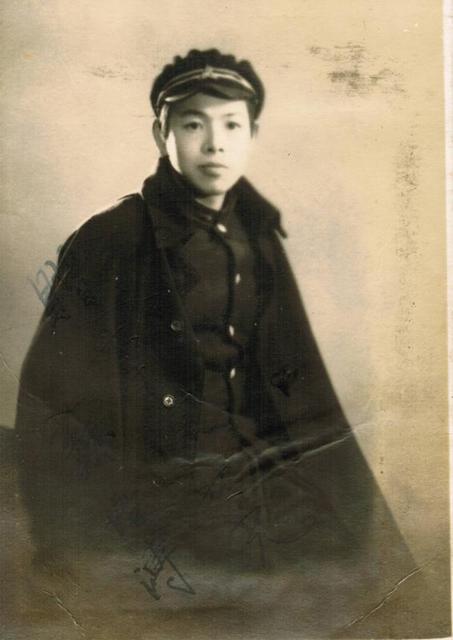Last Chance: The Annual Orchid Show Soars at the New York Botanical Garden
The vibrant colors of Mexico come to NYC for a unique Orchid Show at NYBG!


My family is Taiwanese but my grandfather was sent to prep school in Hiroshima, something only the brightest pupils in Taiwan were allowed to do during the Japanese occupation. While he was in Hiroshima, World War II broke out and all students were drafted into the Japanese military. He was 2o years old. His role was to transport supplies from the outskirts of Hiroshima into the city. On August 6th, 1945 he was on a routine delivery route when he stopped to talk to a friend. Then, as he continued his descent, there was a blinding light, a mushroom cloud, and winds (that reached 1000 mph at the epicenter) that knocked him down. He sought refuge under his truck until the worst passed. He retreated back to the outskirts for the night.
With the breakdown of communication and the collapse of infrastructure, he re-entered the city the next day without knowing what had really transpired. He speaks of shriveled, burned and disfigured bodies, survivors begging for water and how some had completely vaporized. All this the documentary confirmed with first hand witnesses. With no apologies, the documentary also showed both the dead and the survivors – how their eyes, limbs and skin melted away until most were barely recognizable, babies were headless. Most importantly, it conveyed the despair of the survivors, not only in the days following August 6th, but how it impacted the rest of their lives.

My grandfather is probably the luckiest person I know – having suffered no side effects from exposure and also subsequently surviving a ruptured appendix just before he was supposed to get on a warship back to Taiwan. Incidentally, my father is also another lucky fellow – surviving an incident in the Taiwanese military where his parachute got entangled around his arm and didn’t open until the last minute. So by proxy, I am lucky to even be here.
One of the most remarkable things about the survivors, including my grandfather, is their capacity to forgive. What makes a nation capable of looking past the atrocities of war is complex. My grandfather’s sentiments about the United States (he harbors no resentment and has spent a large portion of the last 30 years here) are echoed by other survivors in the documentary. They seem able to separate the ambitions of the United States government with the collective moral consciousness of our citizens.
As per the military theorist, Carl von Clausewitz, war remains the continuation of policy by other means. But I think one of the greatest dangers of the current era is what Michael Ignatieff calls the virtual war. This is defined as the ability to wage wars with impunity, such as NATO’s intervention in Kosovo. We direct our warfare at a society’s nervous system, its computers and communication structures, and increasingly precise technology allows us to pinpoint those structures from a distance and (theoretically) avoid indiscriminate destruction. The potential for few casualties on one side lowers the costs of war drastically and alters traditional forms of deterrence, such as mutually assured destruction. But if we become a society distanced from the cost of war, the romanticism of war may take the form of a self-righteous justification for the use of force. Will nations only desire peace when the risk of war is real?
My grandfather turned 87 this year. He survived the atomic bomb in Hiroshima, multiple sea transits between Japan and Taiwan during WWII and a quadruple bypass surgery in his late 60s. He became a doctor, saw his four children emigrate to the United States, and watched his grandchildren and great-grandchildren grow up. I asked him once how witnessing the atomic bomb had affected him, and his response was (translated from Taiwanese): “I no longer fear death and have learned to take life as it is.”
My grandfather has a remarkable presence that can make a house feel empty in his absence. He gave me the gift of words, the visual arts, and of music, an unapologetic sense of humor and a feisty temper. These days, sometimes we’ll just sit together, without having to say anything. It is hard to imagine my world without him, someone who has given and taught me so much. But perhaps that is how legacies endure, as stories passed through time by descendants who share pieces of generations past.
Michelle Young is the founder of Untapped Cities. She has written bits and pieces of her grandfather’s story since 1999. White Light, Black Rain is available on Amazon and HBO.
Get in touch with the author @untappedmich.
Subscribe to our newsletter